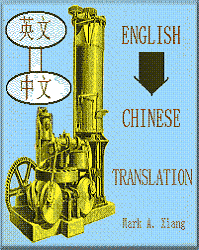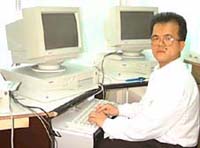Paypal link to bank account - safe? Thread poster: Shaun Yeo
|
|---|
Shaun Yeo 
Local time: 02:13
English to Chinese
+ ...
Hi,
I am thinking of linking my bank account to Paypal to pay overseas fellow translators. Have any of my esteemed colleagues here any experience? Is it safe?
Or you could point me to any link to any useful resources on this issue.
TIA!
Shaun
| | | | Mark Xiang
Local time: 02:13
English to Chinese
+ ...
Safety is almost the same for every wire transfer that now exists, including bank wire transfers. The differeces are in the services it provides and the fees it charges. I suggest you go to Paypal and Moneybookers websites to take a look at them and see what they offer. I am sure you could make your own choice according to your specific requirements.
Hope you will get what you want.
Mark
| | | | | My experience with Paypal | Feb 4, 2005 |
I have yet to experience any problems with Paypal, but you might like to be careful not to have too much money in your account.
[Edited at 2005-02-04 11:45]
| | | | Denyce Seow 
Singapore
Local time: 02:13
Member (2004)
Chinese to English
| Just be careful | Feb 4, 2005 |
You probably have heard a lot of people cursing and swearing at Paypal, but so far it didn't create any boo-boo for me. I've been using it for about two years now, and not a single dime was lost. Nonetheless, there are people with nightmarish cases, such as their accounts being frozen, or $$$ went MIA. It's luck, babe, a matter of luck. I'd say go ahead and use it, but try not to keep too much dosh in it.
| | |
|
|
|
Shaun Yeo 
Local time: 02:13
English to Chinese
+ ...
TOPIC STARTER | Actually, I didn't make myself clear. My apologies. | Feb 4, 2005 |
What I am concerned of is neither the amount transfer never gets to my intended recipient, nor the money in my paypal account goes amiss. In both cases, I will keep the amount small for a start. So, the loss will be minimal.
What I am really worried is that, if I link my paypal account to my real bank account in Singapore and make an initial transfer from my bank account to my paypal account, is there anyway for someone from paypal to then exploit the info and make future trnasfer w... See more What I am concerned of is neither the amount transfer never gets to my intended recipient, nor the money in my paypal account goes amiss. In both cases, I will keep the amount small for a start. So, the loss will be minimal.
What I am really worried is that, if I link my paypal account to my real bank account in Singapore and make an initial transfer from my bank account to my paypal account, is there anyway for someone from paypal to then exploit the info and make future trnasfer without my noticing it?
This part is scary 'cos I have quite a bit of $ in that actual bank account. Ha-
Is this worry unfounded? ▲ Collapse
| | | | Shaun Yeo 
Local time: 02:13
English to Chinese
+ ...
TOPIC STARTER | Thanks! Sorry I didn't make myself clear. | Feb 4, 2005 |
And yes, paypal is OK, at least from what I gleaned from their website.
Thanks again, Mark!
| | | | Shaun Yeo 
Local time: 02:13
English to Chinese
+ ...
TOPIC STARTER | Thanks, Sundari! You advice is very valid. | Feb 4, 2005 |
That's what I intend to do too. Thanks again for replying!
| | | | Shaun Yeo 
Local time: 02:13
English to Chinese
+ ...
TOPIC STARTER
weiwei wrote:
You probably have heard a lot of people cursing and swearing at Paypal, but so far it didn't create any boo-boo for me. I've been using it for about two years now, and not a single dime was lost. Nonetheless, there are people with nightmarish cases, such as their accounts being frozen, or $$$ went MIA. It's luck, babe, a matter of luck. I'd say go ahead and use it, but try not to keep too much dosh in it.
大姐,基本上我想把paypal和posb的户头联起来,担心的是他们能不能利用这样的联系,自行转移款项。我户头里的钱要用来付SCV的上网费用,如果没了,就没法上来和你聊天了。那你在德国也未免太寂寞了吧?
| | |
|
|
|
isahuang
Local time: 14:13
English to Chinese
+ ...
| Its quite safe. | Feb 4, 2005 |
Shaun Yeo wrote: What I am really worried is that, if I link my paypal account to my real bank account in Singapore and make an initial transfer from my bank account to my paypal account, is there anyway for someone from paypal to then exploit the info and make future trnasfer without my noticing it? This part is scary 'cos I have quite a bit of $ in that actual bank account. Ha-  Is this worry unfounded?
I have linked my paypal account to my bank account. So far I haven't encountered any problem. It is quite safe, I think.
| | | | Mark Xiang
Local time: 02:13
English to Chinese
+ ...
| Additional Information | Feb 5, 2005 |
Shaun Yeo wrote:
And yes, paypal is OK, at least from what I gleaned from their website.
Thanks again, Mark!
By saying choosing PP or MB according to your requirements, I mean what you want a PP or MB account for. If you need an account to receive money and then transfer the money to your bank account, you must make sure that it is convenient to do so. If you want to use it to pay your clients, it should be convenient for your clients to receive the wire transfers, especially for your clients to transfer money from their PP or MB accounts to their bank accounts.
Situation is different in different places. In Mainland China, for example, it is more convenient for people to transfer money from their MB accounts to their bank account. But if you need to withdraw money from PP, you have to ask PP to carry out your withdrawal by sending you a bank check.
Mark
| | | | | Monitor, monitor, monitor is what an expert says | Feb 5, 2005 |
Shaun Yeo wrote:
Hi,
I am thinking of linking my bank account to Paypal to pay overseas fellow translators. Have any of my esteemed colleagues here any experience? Is it safe?
Or you could point me to any link to any useful resources on this issue.
TIA!
Shaun
The Basics
Keep thieves out of your bank account(http://moneycentral.msn.com/content/Banking/FinancialPrivacy/P87303.asp?GT1=6190)
advertisement
Get a FREE credit report from Experian
Receive your free credit report with a free 30-day trial of our CreditCheck Monitoring Service
More Info
Start here!
First Name MI Last Name
Street Address Apt.
City State
Select A State Alabama Alaska Amer. Somoa (AS) Arizona Arkansas California Colorado Connecticut Delaware Florida Georgia Guam (GU) Hawaii Idaho Illinois Indiana Iowa Kansas Kentucky Louisiana Maine Mariana Isl. (MP) Maryland Massachusetts Michigan Mil. APO (AA) Mil. APO/FPO (AE) Mil. APO/FPO (AP) Minnesota Mississippi Missouri Montana Nebraska Nevada New Hampshire New Jersey New Mexico New York North Carolina North Dakota Ohio Oklahoma Oregon Pennsylvania Puerto Rico (PR) Rhode Island South Carolina South Dakota Tennessee Texas Utah Vermont Virgin Isl. (VI) Virginia Washington Washington D.C. West Virgina Wisconsin Wyoming
Zip
PRIVACY POLICY
With millions falling victim to high-tech theft, you need all the protection you can get. Here are the biggest vulnerabilities and what you can do about them.
By Liz Pulliam Weston
2004 was not a good year for fans of online banking.
First came word that an estimated 2 million people had had their checking accounts raided in the past year (click here for the story), with strong indications that online thieves were responsible for the majority of incursions. The research firm that conducted the study, Gartner, said checking-account theft was the fastest-growing financial fraud affecting consumers and is now second only to credit card theft (which affected nearly 6 million people in the last 12 months).
Then US-CERT, the government’s computer security team, warned of an insidious new Internet hazard that could launch a stealth attack on your computer, allowing thieves to swipe bank account numbers, passwords and other private financial information.
If you haven’t heard about this latest threat, it’s chilling. It seems that hackers broke into the Web servers of large, trusted companies around the world -- US-CERT isn’t revealing just which ones, but confirms that these were not just small or unknown sites -- and planted malicious code. Consumers visiting these trusted sites were secretly redirected to another Web site, hosted in Russia. That site surreptitiously downloaded software to the victims’ computers, which allowed the thieves to copy bank account numbers, passwords and other private financial information.
This means, you don't need to click on an e-mail link, open an attachment or even visit a suspicious Web site to be infected. Before you know it, Boris and Natasha have everything they need to know to steal you blind.
Financial institutions could do more
US-CERT and other security experts believe they detected the scheme in time to prevent a large-scale attack, but there’s no guarantee the criminals, or others like them, won’t strike again. The thieves exploited security flaws in Internet Explorer and the Microsoft software that runs big Internet servers. (Microsoft is publisher of MSN Money).Get organized with
Microsoft Money 2005.
Order it now.
Financial institutions get their share of the blame, as well, for exposing customers to fraud. Banks don’t use the same kind of fraud detection software on checking accounts that they use on credit card transactions to spot suspicious purchases, said Avivah Litan, vice president and research director at Gartner.
Banks, online bill payers and other financial sites also could make stolen IDs and passwords all but unusable, Litan said, if they would adopt “shared secret” technology. The customer would register her computer’s “machine ID” with the bank so that thieves couldn’t use another computer to pretend to be her; she would then choose a picture or question-and-answer set that would appear every time she logged in on the financial institution’s site.
This would make online banking and bill paying slightly less convenient, since the customer couldn’t use just any old computer to log onto her account. Given the risks of using public or borrowed computers for online financial transactions, though, that’s probably not something you should be doing anyway.
Litan’s interest in checking account fraud is more than academic, by the way; she’s also a victim, and well knows the hassles such theft can cause.
Like most targets, she isn’t exactly sure how her account was compromised, but suspects it happened the one time she used a debit card to buy something online. The thief used her account information to set up a PayPal account with himself as the payee.
The thief took a small amount to start -- just to “probe” the account and see if the theft would be noticed. Litan spotted the unauthorized payment almost immediately, but still had a heck of a time trying to convince PayPal to shut down the bogus account. She finally used one of her professional contacts at the company to intervene with its customer service department.
Plenty of open windows for thieves
Personally, I love the convenience of conducting my finances online. I know that there are risk/reward tradeoffs to virtually every human endeavor, and that moving my banking offline wouldn’t eliminate my vulnerability, as I discussed in “How safe is your financial information?”
Indeed, there are plenty of ways for thieves to access your checking account offline. Here are just a few:
Thieves can swipe your mail, pull out a check you’ve written, soak off the ink with nail-polish remover and write themselves a fat payday.
They can steal your wallet and use your ATM, particularly if you wrote the PIN on your card (a big no-no -- but people still do it).
They can set up phony ATM machines, or devices that fit over legitimate ATMs, then record the information from the magnetic stripe along with your PIN.
Then there’s the possibility of an inside job: a bank employee with access to all your account numbers, user IDs and passwords who simply decides to help himself.
But there’s strong circumstantial evidence that thieves are becoming more experienced at raiding accounts online, and that should concern anyone who uses online banking.
Consider that around 45% of adults with Internet access use the Web to bank or pay bills. Among those whose checking accounts had been raided, 70% were online finance users, Gartner said.
When bad guys go 'phishing,' you're on the line
The rise in checking-account hijacks also corresponds with the rise in “phishing” -- e-mails that purport to be from a financial institution but that route the user to a bogus site that collects their account numbers and passwords.
A Gartner study in May found that 92% of the known phishing attacks had occurred in the previous 12 months, with 76% occurring since October 2003. About 5% of the victims Gartner surveyed admitted providing sensitive account information in response to a phishing e-mail, and Gartner believes the percentage of victims fooled by this scam was probably higher.
Which brings us to the final weak link in the security chain: you and me. There’s still a lot we need to do to protect ourselves while we wait for better security solutions, such as:
Don’t expose yourself. Never use a public computer or wireless “hot spot” for financial transactions.
Beef up your security. If you use Internet Explorer, Microsoft recommends cranking the security setting on your Internet browser up to “high” (you’ll find it under the Tools menu; click on Internet Options and look for the security tab, then select Internet Zone). This may keep some Web sites from working properly, but you can make exceptions for trusted sites. (You can find more details here.)
Use a credit card for online purchases. Technically, debit cards with the Visa or MasterCard logo offer you the same no-liability coverage for fraud that credit cards give you, but you have to wait a few days for the bank to restore the money to your account. Better to have a middleman like a credit card company between a thief and your checking account.
Don’t click. You probably know by now not to open spam e-mails or download attachments from unknown sources. But e-mail links in instant messages, Web message boards and Internet relay chats (IRC) also can be malicious. If a financial institution sends you an e-mail relating to an “urgent problem” or other matter pertaining to your account, use the phone number printed on your statement to respond.
Block pop-ups. Besides being incredibly annoying, pop-ups can be used to install hackers’ software on your computer. Many Internet service providers now have pop-up software built in, or you can get blocking software from sites such as Panicware.com.
Monitor, monitor, monitor. You need to take a careful look at your bank and bill-pay transactions. Don’t assume that odd $40 electronic transfer or check is a payment you just forgot about; it could be a scammer probing to see if the fraud will go unnoticed. With bill payment systems, review your payment history as well as your payee list to make sure there aren’t any unauthorized transactions. The sooner you report the theft the better; after 60 days, the bank may be under no legal obligation to provide a refund.
Stay up to date. Run Windows Update to keep current on the latest security patches. If you use Internet Explorer and have increased your security to “high,” you’ll need to follow the instructions on this link for the update to work properly.
Inject some variety. Don’t use the same user ID and passwords at different financial institutions. If you’re asked to create a security question and answer, don’t use one that’s relatively easy to discover, such as your mother’s maiden name.
Inoculate yourself. Keep your virus software up-to-date and run frequent scans to check for problems.
You could, of course, deal with the problem by simply not banking or paying bills online. But, as I mentioned earlier, that still doesn't eliminate your vulnerability to dishonest insiders or hackers who access bank databases.
Some thieves have even been able to view electronic impressions of victims' paper checks and devise new bogus checks that way.
Offline safety tips
You can reduce your offline risk somewhat by:
Using gel pens to write checks. These inks can't be easily dissolved.
Get a locking mailbox. Make theft of your checks more difficult by locking up your mail and delivering any outgoing checks directly to the post office (In other words, don't let them sit in your mailbox).
Monitor, monitor, monitor. Check your bank account statements religiously. Be alert for any unauthorized transaction, regardless of the size.
Don't write down your password. Especially don't scribble the PIN on the ATM or debit card itself, or anywhere else in your wallet.
Use your credit card for "out of sight" transactions. That waiter who disappears with your debit card could swipe it through a "skimmer," a handheld device that records the information on the magnetic stripe. They can do that with a credit card, too, but again, fixing a fraud problem is easier with a credit card than with a debit card.
Liz Pulliam Weston's column appears every Monday and Thursday, exclusively on MSN Money. She also answers reader questions in the Your Money message board.
| | |
|
|
|
Shaun Yeo 
Local time: 02:13
English to Chinese
+ ...
TOPIC STARTER | Thank you to LH and all! | Feb 8, 2005 |
Dear Last Hermit,
Thank you again for your kind advice!
Also, many thanks to all esteemed colleagues who have contributed to my better understanding of PP!
I've finally given in and linked my bank ac to pp but found to my disappointment PP does not allow me to transfer fund from my bank ac to my pp ac.
I am thinking of using credit card to transfer fund to PP. has anybody any experience? I heard the card company will then charge the rate for cash advance, wh... See more Dear Last Hermit,
Thank you again for your kind advice!
Also, many thanks to all esteemed colleagues who have contributed to my better understanding of PP!
I've finally given in and linked my bank ac to pp but found to my disappointment PP does not allow me to transfer fund from my bank ac to my pp ac.
I am thinking of using credit card to transfer fund to PP. has anybody any experience? I heard the card company will then charge the rate for cash advance, which is quite steep...
最后,让我借此机会向大家拜年。祝大家身体健康,译艺精进! ▲ Collapse
| | | | To report site rules violations or get help, contact a site moderator: You can also contact site staff by submitting a support request » Paypal link to bank account - safe? | Anycount & Translation Office 3000 | Translation Office 3000
Translation Office 3000 is an advanced accounting tool for freelance translators and small agencies. TO3000 easily and seamlessly integrates with the business life of professional freelance translators.
More info » |
| | Wordfast Pro | Translation Memory Software for Any Platform
Exclusive discount for ProZ.com users!
Save over 13% when purchasing Wordfast Pro through ProZ.com. Wordfast is the world's #1 provider of platform-independent Translation Memory software. Consistently ranked the most user-friendly and highest value
Buy now! » |
|
| | | | X Sign in to your ProZ.com account... | | | | | |









